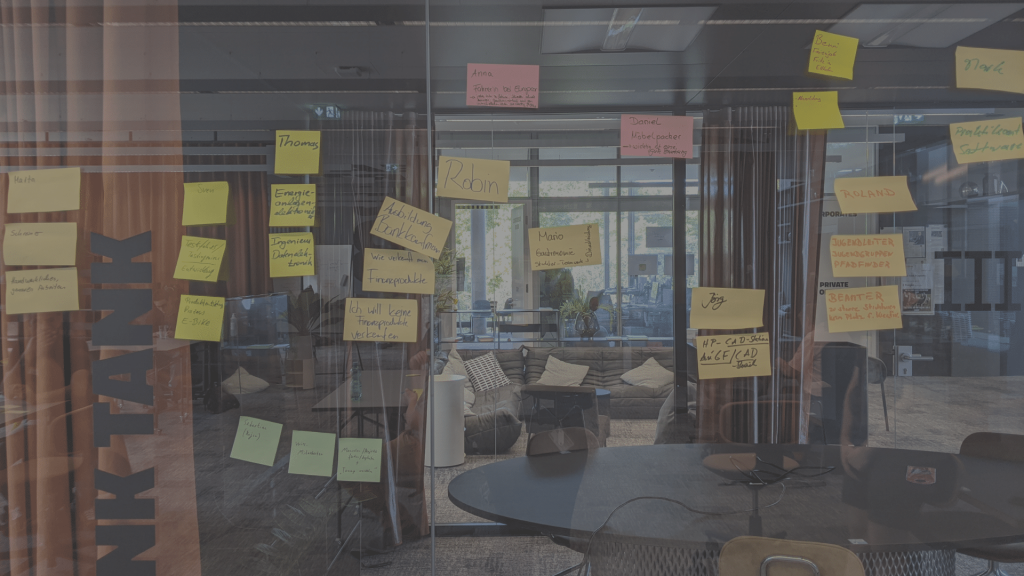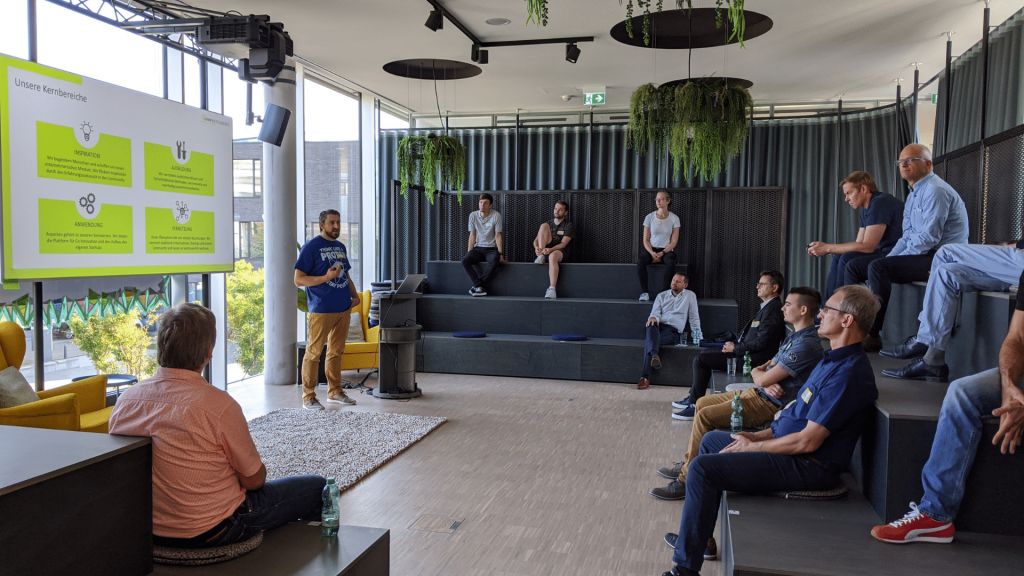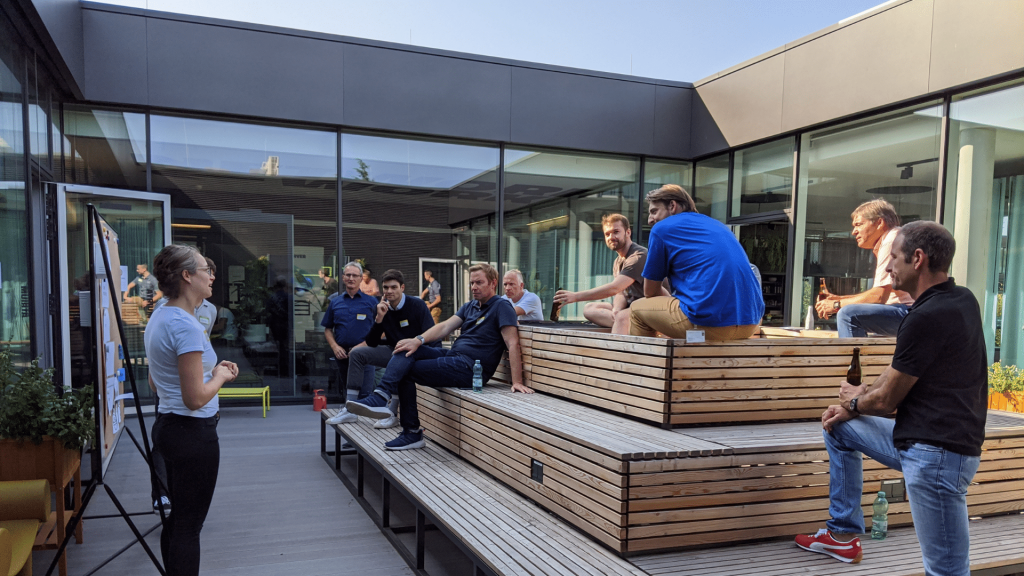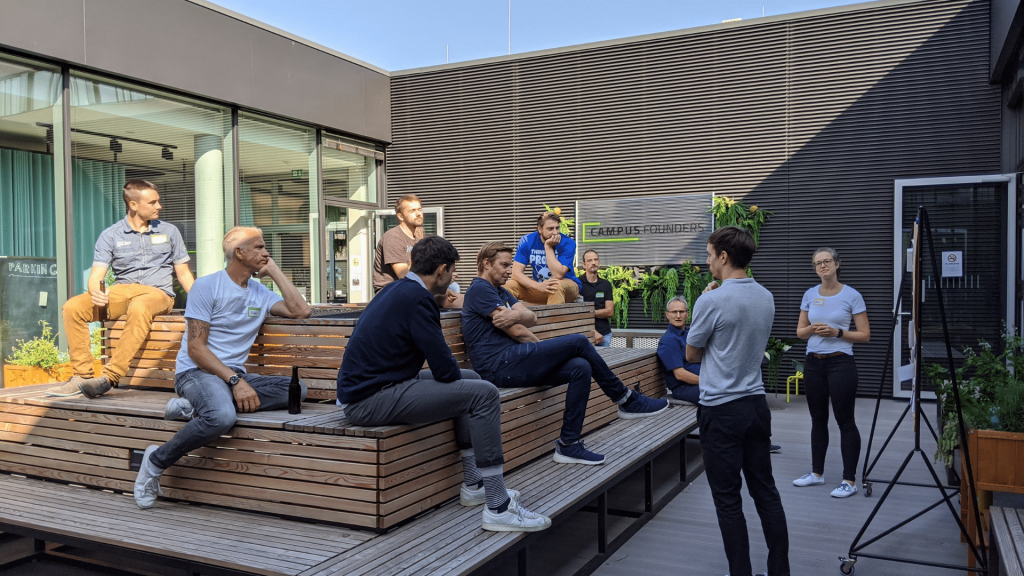Innovation, technologies and collaborations are important elements to the future of trades. In our recent collaboration with the Ferdinand Steinbeis Institute, named Hack the Craftsmen’s Quest, we brought together precisely these components. The question at hand was how to support industries and skilled tradespeople with their challenges and the answer quickly became clear: innovative working methods paired with expert knowledge from technology companies and startups presents the most efficient way.
After the call to a number of companies who offer trades and similar services, many open-minded and curious people came forward who were willing to experiment with us – not an easy feat given most of the time we had to work together online. At the first workshop in September 2020 we defined four challenges of the trade sector, so-called “quests”, in interactive workshop sessions.
#1 Artificial intelligence
#2 The shortage of skilled workers
#3 Cross-industry collaborations
#4 Supportive customer consulting
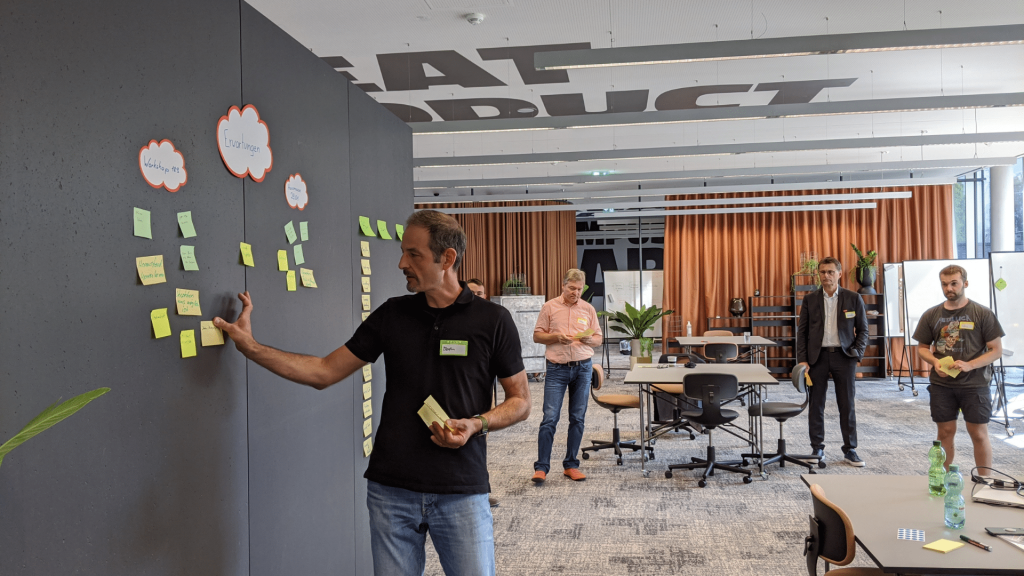
Finding solutions should therefore revolve around these four sub-areas, and all participants were able to identify well with the challenges. In many cases they themselves had been struggling with one or more of these problems for a long time.
The quests were communicated and technology consultants as well as technology companies and startups were called upon to pitch already existing solutions to these challenges in a second event, the virtual in-house exhibition. On January 29th, 2021, this in-house exhibition took place online and the stage belonged to the innovators and tech experts who had considerable solutions on offer. The goal was to demonstrate what the market already has to offer, discover which trades and businesses could possibly benefit from the existing solutions and explore what cooperation would look like.
The “Hack the Craftsmen’s Quests” project has had a great side effect for our Corporate Campus Challenge, in which more than 75 motivated students worked on various approaches to solving challenges from the real world of business. One of these challenges was posed by colleagues at the Ferdinand Steinbeis Institute: How do we get trade-based businesses to collaborate and create value through their product- and service-oriented knowledge? One of the teams that worked on the Craftsmen’s Challenge presented their idea at Hack the Craftsmen’s Quest on Jan. 29th, 2021. We were thrilled about this and it was a great opportunity and experience for the team who had been working hard on their idea for over 12 weeks.
Daniel Burkhardt, a doctoral student at the Ferdinand Steinbeis Institute, was largely responsible for the initiative together with his colleague Anna Rauhut. He identifies a clear positive outcome from the first version of the format: “Through the close exchange and the working methods that we were able to get to know and apply, especially in the first workshop thanks to Campus Founders, we can say that we were able to understand the industry and, above all, the people and their needs. Now we know how to deal with each other in the trade, what is important to the people and where we can start to help. In this way, we have built a very good foundation for further projects and found out that the format can also be transferred to other industries. Great conversations have been created and many contacts have been made and we see that providing this platform has added a lot of value. The combination of our understanding of digitization and the connection to the trade sector with the know-how and skills of the Campus Founders was a perfect mix. This has resulted in great ideas and we are already looking forward to upcoming collaborations.”
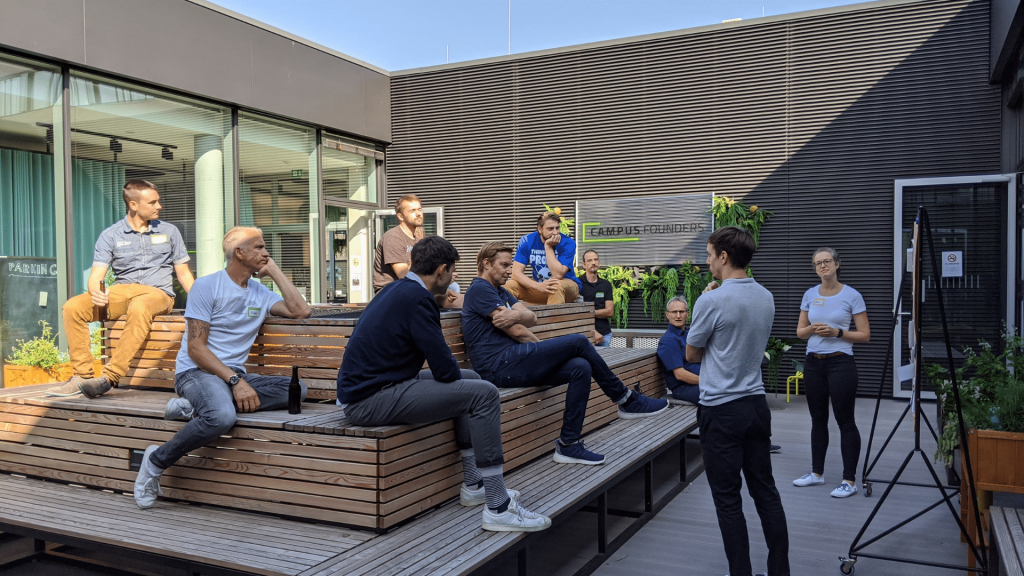
Benjamin Braun, who steered the project from Campus Founders, also sees great opportunities in the cooperation. “The collaboration in the project was very productive from the beginning. We were able to help shape the entire development process and were thus always a part of the project. After valuable discussions, we then decided on the two formats. A world cafe (first session) to identify challenges and generic problems, and the in-house exhibition (second session) to bring together the trades with the identified problems with startups and industrial companies. In this way, we were able to demonstrate the existing solution options on the market. Campus Founders stands for creating platforms where co-innovation and collaboration can take place, so this was a perfect fit with our mindset. Personally, I greatly value collaborations on the Bildungscampus such as the one we have now with the Ferdinand Steinbeis Institute. We strengthen the idea behind the Bildungscampus and make use of a lot of know-how and experience. A project like this brings people together enormously, so we’re already looking forward to the next events.”
A total of eight presenters pitched their ideas at the in-house exhibition, thus serving all four of the identified challenges. Interested representatives of the Chambers of Crafts from Baden-Württemberg to Bavaria were also present. Great contacts were made and the network in our region was expanded to several relevant key players – a great success in our eyes!
